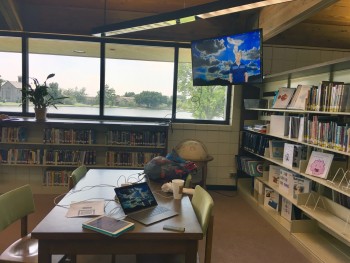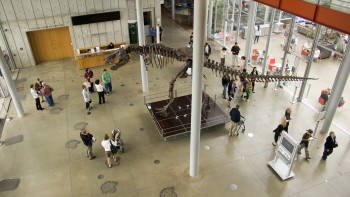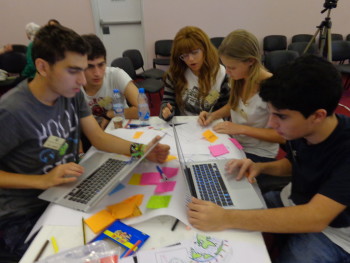Oakland Unified School District Salad Program
REA conducted an evaluation of the impact of a salad bar implementation at 5 schools within the Oakland Unified School District (OUSD). Project evaluation included pre-implementation student surveys and interviews, lunchroom observations, and post-implementation interviews with key project stakeholders (students, teachers, and administrators). The evaluation focused on three key areas: 1) Implementation (training, staffing, promotion, availability, methods for sustainability, curricular connections), 2) Participation (methods of adoption/education, level of participation, parent/teacher/food service worker roles) and 3) Attitudes (changes in diet/nutrition-related knowledge, behavior, impact of cultural differences, food likes/dislikes, expectations, influences on food selection, etc.).
 Photo courtesy of Maryland GovPics via CC licensing.
Photo courtesy of Maryland GovPics via CC licensing. Photo courtesy of Wesley Fryer via CC licensing.
Photo courtesy of Wesley Fryer via CC licensing. Photo courtesy of spacedust2019 via CC licensing.
Photo courtesy of spacedust2019 via CC licensing. Photo courtesy of Julie Lindsay via CC licensing.
Photo courtesy of Julie Lindsay via CC licensing.